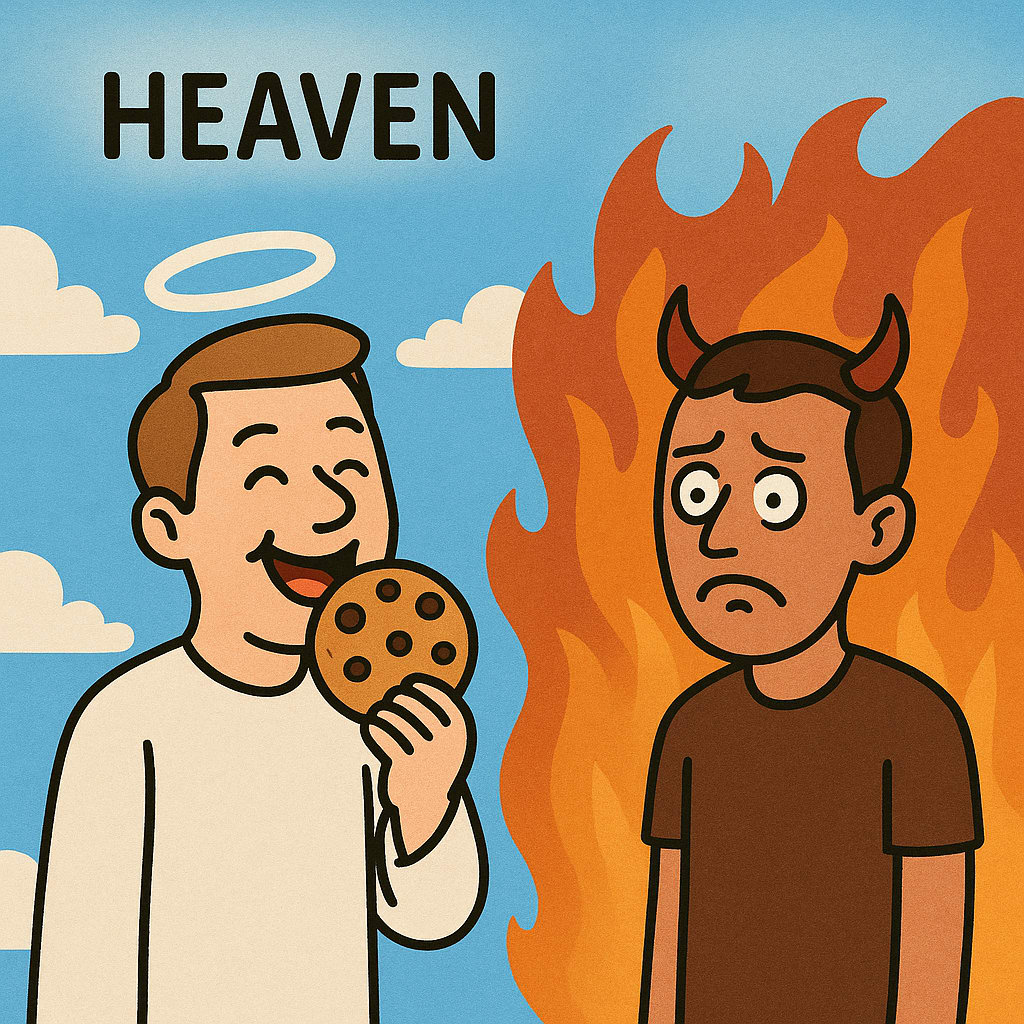Making Your Pain Worse can Get You What You Want
I remember going to church w/ my mom where we’d need to stand while singing. I didn’t really like standing that long, so I told Mom my legs were hurting so could I please sit down?
She said yes.
Sooo the next week, when I wanted to sit down, I intentionally tensed my knee-area so that my legs would hurt. Then I could tell ask my mom again and sit down while not being a dirty liar (we were in church after all).
In general, people can sometimes get what they want [attention/emotional support/etc] by making their problems worse (or creating a problem when there’s none there). One simple way to achieve this is to have a genuine negative reaction to something, focus on the negative reaction until it grows bigger and bigger, and then act from that emotional state when talking to people who can give you what you want.
This doesn’t even have to be done conciously!
After hanging out w/ friends, I felt very tired. I was about to tell them how so very tired I was (& I surely looked it!) and head back home, but then I noticed something odd:
I was forcing myself to feel tired.
So I relaxed, suddenly becoming only kind’of tired. I thought, “Oh, I can just tell my friends I’m going home w/o an excuse. They’re my friends, lol”
So I told them & went home.
I think I was over-focusing on my tiredness to make it bigger in order to be very convincingly tired. I’m not exactly sure why (maybe to call it a night w/o hurting feelings?). And none of this was intentional either!
The overall pattern here is:
If I can truly suffer a lot, I can then convincingly signal to others that I’m suffering a lot and get [positive thing]
Where The Pattern was Formed
For everyone that does this, there was a moment where this was learned. There was something you wanted (to be held, attention, icecream, a break, etc) that you figured out you could get by feeling awful. Maybe you had a bad day so your parents got you icecream, so later you might manufacture bad days semi-conciously to get icecream more.
There’s the classic story of the child throwing a tantrum in the store to get candy, the parents cave & give them candy, reinforcing the “throw a tantrum to get what I want” habit.
That’s a behaviorist view. I also believe that internally, most children are genuinely suffering more (during a tantrum).
This can even apply to yourself; if you can make your own problems worse, you can then later go easy on yourself or let yourself play video games or watch shows or eat yummy food or etc.
Breaking the Pattern For Yourself
Ideally we can just not make our pain worse than it is.[1]
There’s a playful thing you can do with slightly negative things (eg an itch, slight body discomfort, not eating an oreo right now). Try to focus on it and make it bigger or smaller.
Like imagining not eating a cookie is the difference between being in heaven or hell!

This can also work in the other way of making it smaller. You could directly try to do so, but I think relaxing into it, like your stretching and breathing out to relax your muscles is more useful for me.
Unsure how well others can do the same thing, but it’s worth trying for 5 minutes. It was crazy to notice my suffering being self-caused in real time![2]
Those Triggered Snowflakes!
A common reaction to this dynamic is calling people triggered snowflakes.
“You’re making a mountain out of a molehill”
In general, it makes sense to not want to reward people who make their own problems worse (and will continue to do so in the future). I understand the reaction of anger, but that rarely makes a change. How do you actually help others though?
Realizing That You’re on Your Own
If you signal your pain in the woods with no one to hear...
One cure is to be in a situation where you’re truly alone. Not “be lost in the woods for a few hours, grumbling a lot while coming up with the story to tell others later” alone, but crash landed, stranded on an island with noone coming.

While survival is an especially salient goal, there are still other goals I care about that signaling suffering prevents. I want to have an awesome life, with healthy relationships, and not suffer more than I need to! (lol)
Signaling suffering is just one way of many to interact w/ others. When I let go of this pattern/make it not an option, there are so many other ways to solve the problem.
“I promise to wash the dishes in 15 min, I just want to lay down for a bit. No really, I’m setting an alarm right now”
“Could you message me beforehand if you’re going to be late?” (Then, I’ll set a reminder to message them the hour before)
“Could I have a hug?”
Breaking the Pattern From the Inside
When I’m signalling suffering, it does feel like my attention has “collapsed” in on a small set of my sense (ie I’m not that aware of my peripheral vision or sounds). I also am tensing muscles in my jaw, forehead, or even tiny muscles on the top my head that I never thought I had.[3]
Once a concept like this has been pointed out to me, I usually become hyper-aware of it for a week until it becomes a part of me. Curious if any of y’all have had success here!
- ^
This does rely on having healthy relationships where you can just ask to recieve good treatment or have your boundaries respected, so YMMV.
- ^
I can’t claim this applies to all my suffering, but at least the cookie-level kind
- ^
Look at me tensing all these muscles! I’m suffering so much for you to do stuff for me.
Loved this one! This is pointing something common, but most importantly, with the right frame of mind.
I think it’s part of what worries people who discover introspection and therapy (and empathy) for the first time -at least I remember thinking similar thoughts when discovering Focusing. Yet their worry overcorrects and prevents them from noticing sources of suffering they’ve been neglecting all along, and would benefit from healing. Mentioning both sides is useful.
I think it’s worth noting however there are a lot of subtleties that make this meme less applicable to “interpreting other’s behaviors” (this isn’t directed to the OP, more like general guidelines), even if in non-triggered ways :
1-I have high confidence (80%) some people deep in those cycles really do live hell on earth (self-inflicted doesn’t mean inexistant!). It’s tempting to minimize their suffering, but factually wrong.
2-I used to accuse most people I didn’t like of self-inflicted fictitious suffering, including people I hurt or ones who suffered from exogenous causes. This was natural when I myself were denying quite intense painful signals (mine or others). As usual, the world isn’t so dark, one needs more than one hypothesis. People don’t subject themselves to lung cancer, bad trips or senescence in the hopes of being cared for.
3-There’s a related ambiguous situation, where people around you presume you’re seeking help due e.g. to some form of agency differential / ask vs guess culture difference, while you’re not. And that other, ironically symmetrical situation, where you definitely need help but pretend not to (aka “I swear I’m fine!”). Navigating those is tricky, and people low in emotional intelligence can easily get confused.
I think this is a precious insight to share and apply to oneself, however I’d caution against using it as a tool for interpreting other’s behaviors, or at least doing so while staying open to “Uh, ok, she’s not making a mountain out of a molehill, she actually underwent [(tw) war in Irak/r*pe/the death of a relative/etc]” type of insights.
But then again, a very useful post ! Thank you for having written this.
“Learned helplessness” is a quasi-popular-therapy word for this.
You’re bringing up cognitive behavior therapy techniques for dealing with it basically. The oreo/heaven-or-hell thing is cognitive defusion in that you’re showing your intention and anxiety sort of floats apart from reality. It’s more specifically similar to an exposure response prevention exercise: induce the problem on purpose then react to it in a more defused way.
I’m not entirely sure how this relates to seeing this pattern in others. If they’re your friend, you typically take a two-pronged approach: help superficially and get them to address the root problem to the extent you’re aware of a root problem. If the attention is the point, the most loving thing to do is show it can be asked for and given freely. Fake pain won’t prevent getting attention any more than it will cause getting attention.
Thanks for making these connections!
“Learned helplessness” only seems to cover some of these cases though. My exaggerated tiredness didn’t relate to a feeling of lack of control, but I do agree that it is a learned behavior.
...
Cognitive Defusion is the idea that your thoughts & emotions are separate from you. They aren’t immutable facts.
I do think that relates, but I want to communicate:
So yes, I agree then!
...
For relating to my close friends, it usually involves them telling themselves a very sad story (which is true but only focuses on a small subset of details), which can be asked for them to articulate, which can then be challenged directly (in a loving, tactful way; almost socratic?) while providing comfort.
Yeah, I think what I’m trying now is a CBT solution of “Notice your brain consistently telling yourself the worse-case story”, and might need to lean more into CBT. Thanks!
It’s a terms that means something else:
In the situation the OP talks about it’s possible to change the situation by signaling being in pain to other people and then getting help from those people or those people otherwise accepting behavior of the person to change the situation that they might not otherwise expect.
Who’s that “you”? There’s stereotypical situation where a wife tells her husband about one of her struggles and then the husband tries to superficially help which actually doesn’t lead anywhere.
I think a good default response is listening and holding space for a person that suffers. There are also higher skill options that involve not accepting the frame. If you want to understand more in that regard jimmy’s sequence is good.